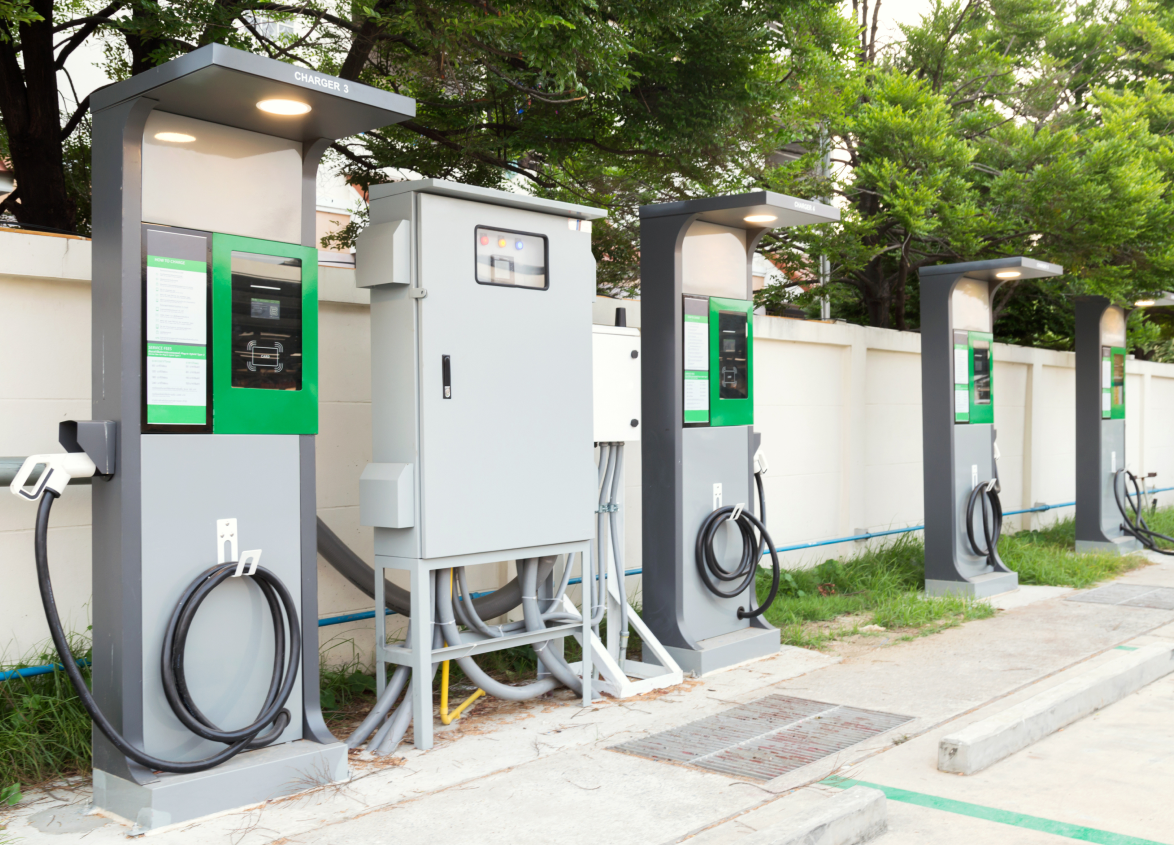
Residential
How to Obtain an Encumbrance Certificate in Bengaluru?
July 31, 2024
Meet Rahul and Swati. They’ve been saving for years and have shortlisted a few properties. As first-time buyers of property, they come across a whole new vocabulary each day while searching for their dream home—understanding the difference between carpet and built-up areas and the legalities of property ownership. However, Rahul, ever conscious, has one concern: How do we know if the property we are considering is free from any legal claims or outstanding liabilities? Here, an encumbrance certificate comes to their rescue.
Let’s study how Rahul and Swati can apply for an encumbrance certificate in Bengaluru for hassle-free ownership.
What is an Encumbrance Certificate?
An encumbrance certificate in Bengaluru (sometimes called an EC) is a legal document issued by the Department of Stamps and Registration, Karnataka. It verifies a property’s ownership status and reveals any financial or legal claims on it. These claims or encumbrances include mortgages, loans, outstanding taxes, or legal disputes. In other words, an ec certificate Bengaluru will help confirm if the property Rahul and Swati want to buy is free of legal and financial issues.
There are two main types of encumbrance certificates:
Form 15 EC
This comprehensive EC details all transactions registered against the property within the sub-registrar’s office for a set period. It provides a complete history of the property’s ownership and any encumbrances that may have existed previously, even if they have been cleared.
Form 16 EC (Nil Encumbrance Certificate)
This EC confirms that the property is free from any encumbrances for the requested period. Buyers often prefer this as it signifies a clear title at present. However, a nil encumbrance certificate doesn’t account for unregistered transactions.
Importance of an Encumbrance Certificate in Bengaluru
Rahul recalls an incident about his friend, Avaneesh. They found a property at a considerably cheaper price. He was so eager to close the deal quickly that he skipped getting an EC. Unfortunately, a few months after moving in, he received a legal notice. It turned out the property had an outstanding mortgage from the previous owner that hadn’t been disclosed.
Learning from Avaneesh’s mistake, Rahul and Swati are determined to avoid similar traps. Hence, before finalizing the deal, they want to understand the importance of getting an encumbrance certificate (EC) for the property. Here’s how the EC helps them:
- Verification of property ownership and title clarity: An encumbrance certificate in Bengaluru is a definitive record of ownership for a particular property. It provides a historical record of all transactions associated with the property, including purchases, sales, mortgages, gift deeds, and title deeds. By reviewing the EC certificate, Rahul and Swati can gain confidence that they are dealing with the rightful owner and that the property is free from ownership disputes.
- Assurance of a free and clear property: An EC reveals any existing encumbrances on the property. These encumbrances can be financial burdens such as outstanding mortgages, loans, or unpaid taxes. Additionally, it can reveal legal liabilities like easements or restrictions on the property’s use. A nil encumbrance certificate (which indicates the absence of any encumbrances) is highly sought after by buyers as it guarantees a clear title and reduces the risk of future legal liabilities.
- Facilitates secure real estate transactions: An encumbrance certificate in Bengaluru is a mandatory document for various property transactions. These include property purchase or sale, applying for a home loan from a financial institution, property mutation (updating ownership records), and even using provident funds for a property down payment. A readily available EC streamlines the process and instills confidence in all interested parties.
- Peace of mind for property buyers: Investing in real estate is a significant financial decision for Rahul and Swati. An EC in Bengaluru will provide the buyers with the knowledge and security they need. Verifying ownership and disclosing encumbrances will prevent fraudulent transactions. Therefore, buyers purchase a property with a clear title.
- Increased resale value: A property with a clear title, as evidenced by a nil encumbrance certificate, will be more desirable to Rahul and Swati. The couple is ready to pay a higher value in return for the peace of mind.
Documents Required to Get an Encumbrance Certificate in Bengaluru
When Rahul and Swati apply for an EC online or offline, they will need to keep the following documents ready:
- EC application form (Form 15 or 16, as applicable)
- Attested copy of address proof
- Original Aadhar card
- Photocopies of previous property deeds (sale deeds, gift deeds, partition deeds, etc.)
- Details about the property and its title
- Information from a previously registered deed, including the deed number, book number, date, volume/CD number (all linked together), and signature
- EC period
- The reason for applying for the EC online or offline
- Property card (if there is one)
- Copy of Power of Attorney (POA) (if someone else is applying on their behalf)
Rahul and Swati need to make sure all documents have clear, legible copies and the necessary stamps (if applicable).
Eligibility Criteria to Apply for an Encumbrance Certificate in Bengaluru
There are no specific eligibility criteria for applying for an EC. Anyone with a valid interest in the property can request it. This interest could be:
- Property ownership: If Rahul and Swati are the current owners of the property, they can obtain an EC to verify their ownership and confirm there are no encumbrances (financial or legal claims) on the property.
- Prospective buyer: If Rahul and Swati are considering purchasing a property in Bengaluru, they must obtain an EC. An EC allows them to verify the seller’s ownership and ensure the property is free from any legal or financial burdens that could impact their purchase.
- Loan applicant: Financial institutions like banks require an EC when applying for a property loan. The EC assures the bank that the property has a clear title and can function as collateral for the loan.
- Other parties: In some cases, individuals with an interest in a property due to inheritance, property disputes, or other legal matters may also require an EC. An authorized individual or one with a POA is also eligible.
Here are some key points to remember:
- There are no restrictions based on nationality or residency status.
- Rahul and Swati do not need to be the legal owners to apply, but they will need some connection to the property and a reason for requiring the EC.
- Keep the property address, survey number, and previous ownership information handy when applying for an online encumbrance certificate.
How to Apply for an EC Certificate Online?
The online process for obtaining an encumbrance certificate in Bengaluru is faster and more convenient than the offline method. Here’s a step-by-step guide explaining to Rahul and Swati how to apply for an EC online in Bengaluru:
- Step 1: Registration on the Kaveri Online Services Portal
- Visit the official website of the Karnataka Department of Stamps and Registration: https://kaveri.karnataka.gov.in/
- If you’re a new user, click on ‘Register as New User’
- Fill out the registration form with your details, like your name, email address, and phone number
- Create a password
- Use the activation code received on your registered email and phone number to activate your account
- Step 2: Login and navigate to the EC Service
- Once your account is activated, log in to the Kaveri Online Services portal using your registered email address and password
- From the ‘Services’ list, go to the ‘Online EC’ option
- Step 3: Property details and search
- Select the desired duration for which you want to search for encumbrances on the property
- Enter the specific property details, such as district, taluk, hobli, village, and survey number, which can be found on your sale deed or property registration documents
- Step 4: Verification and payment
- Once you’ve entered the details and confirmed them, you will be presented with a summary of the search criteria
- Review the details carefully and ensure they are accurate for the particular property
- Receive a One-Time Password (OTP) to view the document by clicking on the checkbox ‘Check to Apply for digitally signed EC’
- This will initiate the online payment process for the EC certificate online
- You can pay the application fee and any applicable search charges using various online payment methods like net banking, credit card, or debit card
- Step 5: Downloading the EC
- After successful payment, the system will generate a digitally signed encumbrance certificate. You can download it in PDF format.
Offline Process to Get an Encumbrance Certificate in Bengaluru
What if Rahul and Swati are hesitant to apply for EC in Bengaluru online? They can perform the application process offline. Here’s how:
- Step 1: Visit the Sub-Registrar office
- Locate the nearest sub-registrar office in Bengaluru where property transactions related to your particular property are registered.
- Step 2: Gather the application form
- The application form for the EC can be obtained from the office counter or downloaded in advance from the Department of Stamps and Registration, Karnataka’s official website.
- Step 3: Complete the application form
- Fill out the application form with accurate details about the property. This includes:
- Your complete name and contact information (as the applicant)
- Details of the property owner (if different from the applicant)
- The property address
- The survey number of the property
- The period for which you require the encumbrance certificate (usually in years)
- The purpose for obtaining the EC (property purchase, loan application, etc.)
- Fill out the application form with accurate details about the property. This includes:
- Step 4: Attach the required documents
- The following paperwork must be submitted with the filled-out application form for the encumbrance certificate in Bengaluru:
- A photocopy of a valid ID proof (Aadhaar card preferred)
- Address proof (which can include passport, electricity bill, ration card, among others)
- Property registration documents (sale deed, gift deed, etc.)
- A Rs. 2 non-judicial stamp
- The following paperwork must be submitted with the filled-out application form for the encumbrance certificate in Bengaluru:
- Step 5: Submit the application and fee
- Once you’ve gathered all the required paperwork, deliver it to the sub-registrar’s office with the completed application form. To submit the application for an encumbrance certificate in Bengaluru, you will also need to pay the necessary amount.
- Step 6: Collect the encumbrance certificate
- The processing time for an offline EC application may take a few days to a week. You will be informed when your certificate is ready for collection.
Property Details Available on Encumbrance Certificate in Bengaluru
When Rahul and Swati get their hands on EC in Bangalore, it will specify the following:
- Property description: This section details the specific property. The property address, plot number, survey number, and total land area are mentioned.
- Ownership: The encumbrance certificate in Bengaluru will disclose the names of the property’s current owner(s) and shareholding.
- Transaction history: This section provides a chronological record of all registered transactions related to the property. This includes details like sale deeds, gift deeds, mortgages, and property partitions. Reviewing the transaction history lets Rahul and Swati know the property’s ownership history and identify any red flags.
- Encumbrance details: This is what makes the EC. It details any existing legal or financial encumbrances attached to the property. These could be outstanding mortgages, loans against the property, or government dues and unsettled legal disputes or attachments by a court order. A nil encumbrance certificate (obtainable through the EC certificate online process or via the sub-registrar office) indicates that the property is free from these liabilities for the requested period.
- Registration details: The encumbrance certificate in Bengaluru will also inform the registration department about the property’s registration. This includes the registration date, the relevant sub-registrar’s office, and the document number assigned during registration.
Charges for Encumbrance Certificate Online Application
While the cost of getting an encumbrance certificate in Bengaluru is quite low, the benefits it provides in terms of security and peace of mind during a property deal are far greater. Here are the charges Rahul and Swati need to pay:
Example: If Rahul and Swati applied for an EC for a property with a transaction history spanning five years, they would pay the base application fee (Rs. 5). The search fee for the first year is Rs. 30, and an additional search fee for the remaining four years will be Rs. 40 (4 years * Rs. 10/year).
The total fee Rahul and Swati paid in this scenario would be Rs. 5 (application fee) + Rs. 30 (search fee for year 1) + Rs. 40 (search fee for years 2–5) = Rs. 75.
- Application fee/charges: This is a base fee applicable to all EC applications and amounts to Rs. 5.
- Search fee: This fee covers the cost of researching property records for the specified period mentioned in the application. The charges are structured as follows:
- Search fee for one year: Rs. 30
- Search for each additional year: Rs. 10
Conclusion
Now that Rahul and Swati have all the information to apply for an EC online, they can get one and proceed with real estate transactions with confidence. If you are in the same shoes as our now-happy couple, remember to read through the steps and follow them to avoid any hold-ups in your application. If you run into any issues or have questions, don’t hesitate to ask for help at the customer service desk of your nearest sub-registrar’s office.
One of Bengaluru’s top real estate developers, Brigade Group, is aware of the need for distinct property titles. You and your investment are protected if you have an encumbrance certificate in Bengaluru. Before completing any real estate transaction, we strongly advise all potential purchasers to get an EC.
Frequently Asked Questions (FAQs)
How can I track my EC update?
Once you’ve submitted your application for the encumbrance certificate in Bengaluru online, here’s how you can check EC status on the Kaveri Online Services portal:
- Visit the official Kaveri Karnataka website and sign in using your login information.
- After logging in, locate the ‘Online EC Application’ option within the Service Type section on the main page.
- If the EC is ready, you can download it directly. You can’t access the encumbrance certificate if your application is still under review.
Who can apply for the EC certificate online in Bengaluru?
Anyone with a legal interest in the property can apply for an encumbrance certificate in Bengaluru. This could include:
- Property owner(s)
- An authorized representative of the owner(s) with a valid Power of Attorney
- A person with a vested interest in the property
How many days does it take to get an online EC in Bengaluru?
The processing time for a Bengaluru EC online is around 2-3 business days. It depends on the workload at the sub-registrar’s office.
How do you update the EC in Bengaluru?
To ensure the information on your encumbrance certificate in Bengaluru is accurate, carefully examine all documents and details during the application process. In the case of a mistake or error on your EC, you can address it by submitting a rectification deed to the sub-registrar’s office. However, a rectification deed can only be used to correct clerical errors. It cannot be used to make any changes to the original documents used to obtain the EC in property.
What is the difference between EC, OC, and CC in real estate transactions?
- Encumbrance Certificate (EC): This document verifies a property’s ownership and reveals any financial or legal burdens attached to it.
- Occupancy Certificate (OC): Issued by a local authority, it confirms a building complies with building regulations and is suitable for occupancy.
- Completion Certificate (CC): Issued by the builder, this certificate signifies the project’s completion according to the sanctioned plans.
Simply put, an EC verifies the clear title, while an OC and CC are required for property possession and habitability.
MUST READ
Looking for something specific?
We'd be delighted to help you.

























































































































































































































































































































































































































































